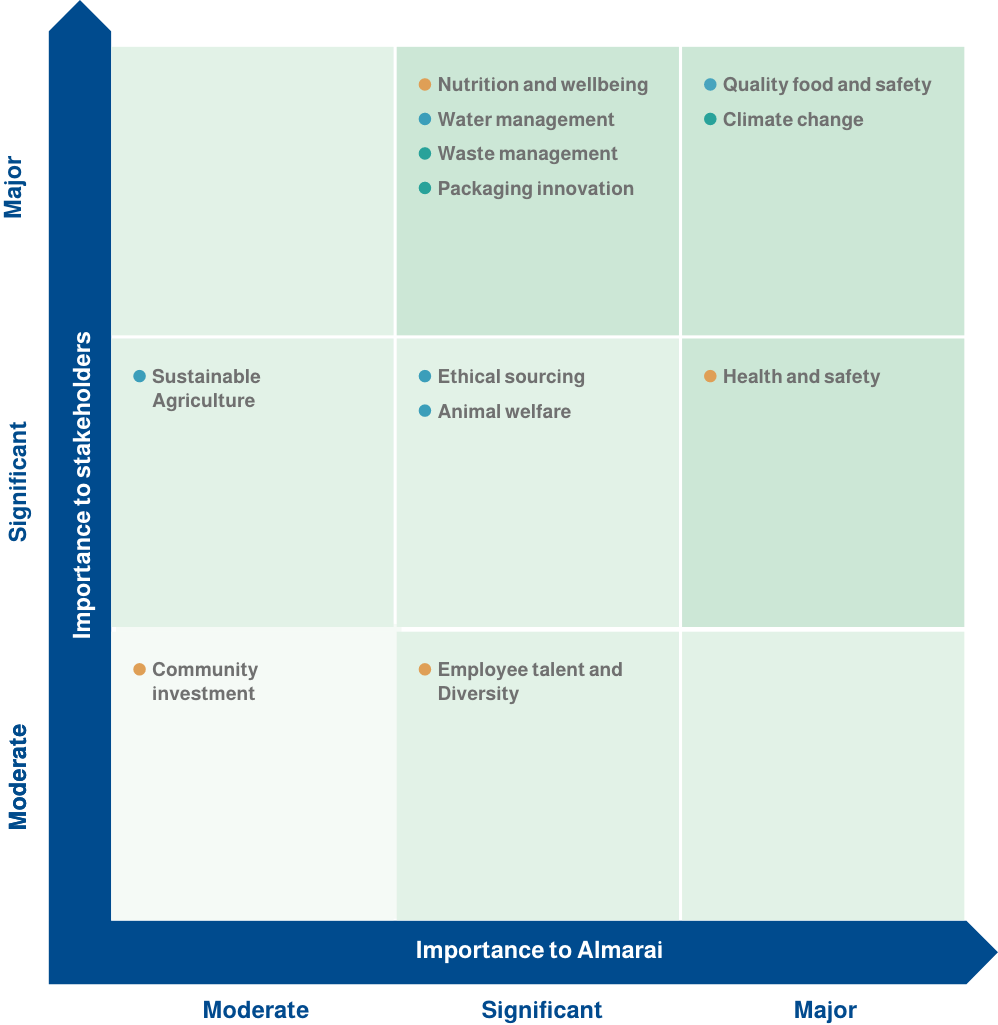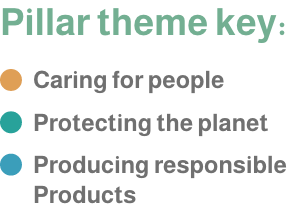We use the principle of materiality to identify the economic, social, and environmental issues that matter most to our business and our stakeholders. By considering the concerns of our stakeholders, alongside the risks and opportunities that face our business, materiality helps us prioritize where to focus our efforts to enhance stakeholder value and our sustainability performance. Materiality also guides us on what we should report on publicly.
In 2019, we conducted an internal review of materiality and continued to monitor priority issues considering internal and external factors during 2020. We have initiated another formal materiality assessment with internal and external stakeholders in 2021, and the results will be available in 2022.
Our approach to materiality is consistent with the GRI Standards.
In 2019, we reviewed our list of 20 material issues from 2018 against international industry guidelines, frameworks, and industry peers, along with analysis of our operating market and regulatory landscape. We engaged internal stakeholders to supplement our market analysis. Based on internal feedback and external considerations, we have consolidated our list of material issues from 20 to 12 issues and replotted them on the matrix below. We consider governance to be material and interwoven throughout our sustainability framework rather than a standalone topic. We continue to address governance vis a vis our annual report and GRI-based disclosures. Our materiality update was validated by our executive management.

